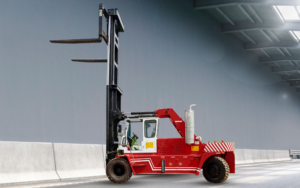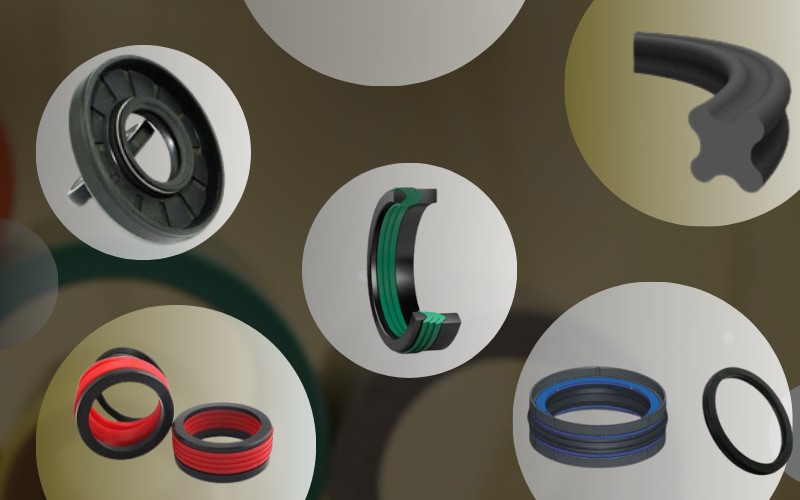Seals are crucial components in a wide range of mechanical systems, ensuring the integrity and efficiency of machinery by preventing leaks and contamination. From automotive engines to industrial machinery, seals play a vital role in maintaining optimal performance.
O-rings are one of the most common types of seals used in various applications. They are circular rings made from elastomeric materials such as rubber, silicone, or fluorocarbon. O-rings are designed to fit into grooves and create a seal between two or more parts.
Lip seals, also known as oil seals, are used to prevent the leakage of lubricants and the ingress of contaminants. They have a flexible lip that maintains contact with a rotating shaft.
Mechanical seals are complex devices used to seal the interface between a rotating shaft and a stationary part. They are commonly used in pumps and compressors.
Hydraulic seals are used in hydraulic cylinders to prevent fluid leakage and maintain pressure. They come in various forms, including rod seals, piston seals, and wiper seals.
Piston rings are used in internal combustion engines to seal the combustion chamber and control oil consumption. They are made of durable materials such as cast iron or steel.
The primary function of seals is to prevent the leakage of fluids or gases. This is essential in maintaining the efficiency and safety of mechanical systems, especially in hydraulic and pneumatic applications.
Seals protect systems from contamination by keeping dirt, dust, and other particles out. This is critical in environments where cleanliness is paramount, such as in medical devices and food processing equipment.
In many applications, seals are used to contain high pressures. This is particularly important in hydraulic systems, where maintaining pressure is essential for proper operation.
Seals help retain lubricants within mechanical systems, ensuring smooth operation and reducing wear and tear on moving parts. This extends the lifespan of the equipment and improves reliability.
Seals can also act as insulators, absorbing vibrations and isolating heat. This is beneficial in applications where components are exposed to extreme temperatures or mechanical stress.
Seals are integral to the automotive industry, where they are used in engines, transmissions, brakes, and steering systems. O-rings, gaskets, and lip seals ensure that these systems operate efficiently and safely by preventing fluid leaks and contamination.
In the aerospace sector, seals must withstand extreme temperatures and pressures. They are used in aircraft engines, hydraulic systems, and fuel systems to ensure reliable performance and safety.
The oil and gas industry relies heavily on seals to prevent leaks and contamination in pipelines, valves, and pumps. Mechanical seals and gaskets are crucial in maintaining the integrity of high-pressure systems and preventing environmental contamination.
Seals are essential in manufacturing and industrial machinery, where they are used in hydraulic and pneumatic systems, pumps, compressors, and gearboxes. They help maintain pressure, retain lubricants, and protect against contaminants.
In the medical field, seals are used in various devices, including syringes, pumps, and diagnostic equipment. They ensure that these devices operate without leaks and are free from contamination, which is critical for patient safety.
Seals in the food and beverage industry must meet strict hygiene standards. They are used in processing equipment, packaging machines, and pumps to prevent contamination and ensure product safety.
Hydraulic seals are widely used in construction equipment such as excavators, loaders, and cranes. They maintain the efficiency of hydraulic systems by preventing fluid leaks and ensuring smooth operation.
In the marine industry, seals are used in engines, pumps, and steering systems to prevent leaks and withstand harsh marine environments. They help maintain the reliability and safety of marine vessels.
Seals are indispensable components in countless applications across various industries. Their primary functions of preventing leaks, excluding contaminants, containing pressure, retaining lubrication, and isolating heat and vibration are crucial for the efficient and safe operation of mechanical systems. Understanding the different types of seals and their specific applications can help in selecting the right seal for your needs, ensuring the longevity and reliability of your equipment. As technology advances, seals will continue to evolve, offering even greater performance and versatility in an ever-expanding range of applications.
Excellent Engineering & Allied Services Pvt Ltd specializes in manufacturing seal products and offers a range of services to ensure optimal performance and longevity of equipment. Our services include maintenance, repair, and operational support for a variety of machinery such as forklifts, container stackers, and hydraulic cylinders. We are committed to providing top-notch solutions to enhance the efficiency and reliability of industrial operations.

